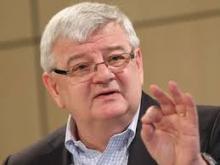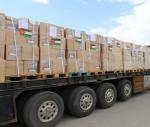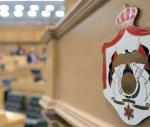You are here
What the war in Ukraine means for Europe
May 09,2022 - Last updated at May 09,2022
BERLIN — Although spring is coming to Europe, the continent seems to be experiencing a flashback to some of the iciest moments of the Cold War. In fact, Russia’s invasion of Ukraine has brought an end not only to a prolonged period of peace in Europe but also to the European security order on which peace has depended.
Of course, the end didn’t come suddenly. Nearly eight years before sending tens of thousands of troops into Ukraine on February 24, Russia annexed Crimea and launched a shadow war in the Donbas region. People have been fighting and dying in the violence in eastern Ukraine ever since, while the world looked on as the Kremlin sought to “fillet” a sovereign state by shaving off provinces.
Since 2014, the European peace framework has existed only on paper, where it has been sustained by Western Europeans’ wishful thinking about Russia’s political intentions. The previous European order, which rested on the absolute integrity of borders, has been replaced by an older form of European great-power politics in which force is used to claim zones of influence unilaterally. The threat of another Great War has thus returned to Europe, catching Europeans politically, militarily, and above all psychologically unprepared.
Though we cannot know when or how Russian President Vladimir Putin’s war of aggression will end, the return of old-style power politics makes possible three scenarios. First, Russia could prevail in eliminating Ukraine as an independent, sovereign state. That would immediately raise existential questions for neighbouring countries, among them not only Moldova and Georgia, but even NATO members such as Poland and the Baltic states. Were NATO to be pulled into a direct conflict with Russia, the war would quickly escalate to continental proportions. Given the heightened risk of a nuclear conflict, all of democratic Europe would be threatened.
In the second scenario, Putin fails to subdue Ukraine even after deploying the most brutal military means at his disposal. Ukraine would survive as a sovereign state, owing to the courage of its people and to the supply of weapons and financial aid from the West. But since the current Russian leadership would remain in place, the best that could be said is that Ukraine will not have lost, and Putin will not have won.
In the third scenario, there would be a truce on the basis of some kind of negotiated compromise. This option seems the least likely at the moment, however, given the atrocities committed by the Russian army in Bucha and elsewhere.
While the first scenario would certainly be the worst from a European and Western perspective, all three would preclude any return to the status quo ante. Peace requires trust, and it is impossible to see how trust could be restored as long as Putin remains in power, and as long as Russia is careening towards totalitarianism.
In the meantime, Europe’s eastern borders would remain perpetually under threat from hot, cold, and hybrid altercations. As part of its broader response, Europe would need to counter Russian nuclear blackmail. That means developing a nuclear deterrence strategy of its own, something it does not currently possess in any credible form.
The nuclear question alone demonstrates the epochal scale of Europe’s current challenge. Since Putin launched his war of aggression, strengthening Europe’s defensive and deterrence capabilities has become a top priority. Moreover, while this process must be carried out in the context of NATO, Donald Trump’s presidency in the United States made clear that Europeans also must be prepared to go it alone.
Above all, Europeans must harbor no illusions. Now that Putin has destroyed the European peace framework, war, and the mindset of war, has returned to the continent. Europe’s new reality will be characterised by constant political risks, arms races, and the ever-present danger of a cold conflict escalating into a hot one.
For the European Union, deep and far-reaching changes lie beyond this historical turning point. With Putin’s Russia threatening Europe militarily, the EU must transform itself into a geopolitical player with a strong capacity for deterrence, while still preserving its traditional strengths as a common market and legal community. To maintain a technological edge, it will need to do much more to support innovation and increase its domestic high-tech capacity.
Politically, the EU’s center of gravity will shift eastward, and the relationship between the EU and NATO will become much closer. So, too, should relations between Washington and Brussels. After all, without US military power, Europe probably would have done little to nothing in response to Putin’s war. US military protection will remain indispensable for a long time to come. But given the possibility of another Trump or Trump-like presidency, Europeans have every reason to increase their own contributions to transatlantic security.
While hoping for the best, Europe must prepare for the worst. Few still alive today remember the worst. Entire lives have been lived in peace and prosperity. Now it is time to defend the Europe that made that possible.
Joschka Fischer, Germany’s foreign minister and vice chancellor from 1998 to 2005, was a leader of the German Green Party for almost 20 years. Copyright: Project Syndicate, 2022.













